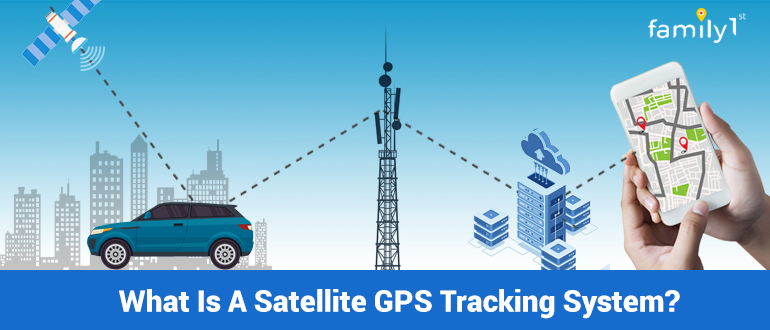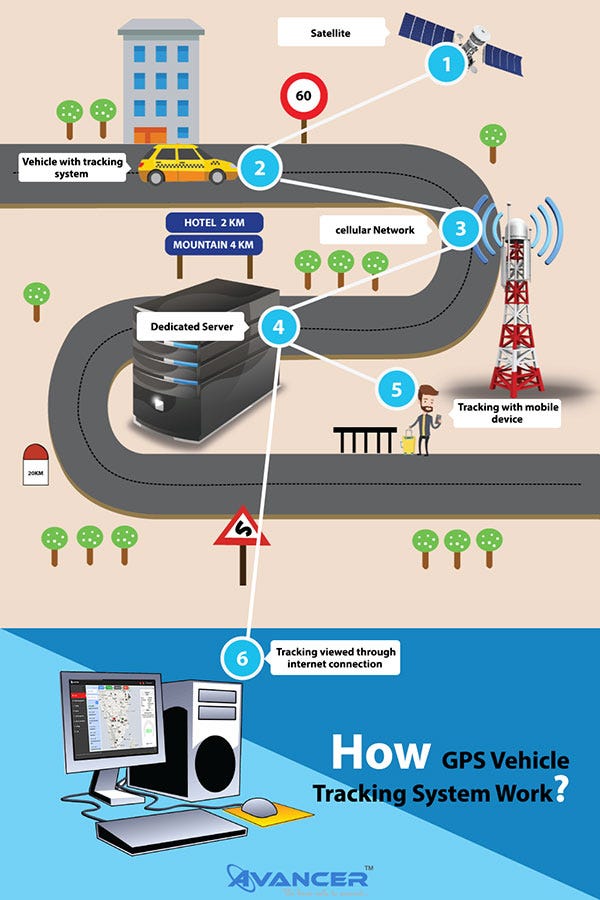How GPS Tracking Can Improve Your Organization Procedures
How GPS Tracking Can Improve Your Organization Procedures
Blog Article
Navigating the Future of GPS Monitoring: Technologies, Difficulties, and Opportunities Ahead
As we stand at the crossroads of societal ramifications and technological innovations, the landscape of general practitioner monitoring is poised for a transformative trip ahead. The advancement of GPS technology has actually been quick, introducing a brand-new era of real-time tracking capacities that assure unprecedented degrees of accuracy and efficiency. With excellent technology comes fantastic duty, as information personal privacy problems impend big and safety and security obstacles in GPS tracking raise significant inquiries regarding protecting sensitive information. Among these difficulties lie hidden chances waiting to be explored, using a glimpse right into the untapped possibility of an industry at the edge of modification.
Advancement of GPS Innovation
Created for military purposes, General practitioner innovation has advanced to end up being an ubiquitous device in various industries, including transport, logistics, agriculture, and individual navigating. Early GPS systems were defined by limited insurance coverage, lower accuracy, and bulkier equipment needs.
One secret milestone in the development of GPS technology was the growth of Careful Schedule (SA) in the 1990s, which intentionally deteriorated the accuracy of noncombatant General practitioner signals. As GPS modern technology proceeds to evolve, we can expect more improvements in accuracy, protection, and efficiency, opening up new possibilities for innovation and applications across various markets.
Real-Time Tracking Improvements
Building on the improvements in GPS technology that have actually revolutionized accuracy and insurance coverage, real-time tracking has actually become a critical location of development with extensive implications across various markets. Real-time tracking improvements make it possible for organizations and services to check possessions, vehicles, and employees immediately, providing useful insights for decision-making processes - gps tracking. By leveraging real-time information, firms can enhance functional effectiveness, enhance customer care, and guarantee the safety and security and protection of their possessions
One of the key improvements in real-time tracking is the assimilation of synthetic intelligence and equipment learning algorithms, which allow predictive analytics and anomaly detection. These capabilities enable aggressive upkeep scheduling, course optimization, and risk reduction strategies. Moreover, the advancement of real-time radar has actually caused the development of personalized control panels and mobile applications, empowering customers to accessibility critical information anytime, anywhere.
Information Privacy Problems

Data privacy problems include numerous facets, consisting of the storage space, sharing, and retention of area information. Services should apply More Info robust protection procedures to safeguard GPS monitoring information from cyber hazards and data violations. Transparent policies relating to data collection methods and the objective of tracking are vital to develop trust with consumers and ensure conformity with information security regulations.

Safety And Security Challenges in GPS Tracking
Resolving information personal privacy worries in GPS monitoring is intricately connected to minimizing the protection challenges that emerge from possible vulnerabilities in the technology. One of the main security obstacles in GPS tracking is the danger of unauthorized access to sensitive location data.

One more safety and security difficulty is the capacity for spoofing or obstructing GPS signals. Executing durable file encryption, authentication measures, and signal verification methods are important actions in dealing with these protection obstacles in GPS monitoring.
Emerging Opportunities in the Industry
The burgeoning area of GPS tracking modern technology presents a myriad of appealing opportunities for sector growth and development. One essential opportunity lies in the expansion of general practitioner monitoring applications past typical sectors. Industries such as logistics, transportation, and fleet administration have been very early adopters of GPS technology. However, arising possibilities are currently emerging in locations like health care, farming, and environmental tracking. General practitioner tracking can change individual treatment by making it possible for remote tracking of vital signs and making certain prompt medical assistance. In agriculture, GPS innovation can enhance crop management practices and boost overall return. Moreover, environmental surveillance can gain from GPS tracking by enabling real-time information collection for environment research study and conservation efforts.
Another considerable opportunity in the GPS monitoring industry is the assimilation of innovative analytics and fabricated intelligence. By leveraging these innovations, organizations can obtain important insights from GPS data to improve functional effectiveness, boost decision-making processes, and offer customized solutions to consumers. Furthermore, the increasing demand for connected gadgets and IoT solutions provides a ripe chance for GPS monitoring companies to increase their offerings and create ingenious options that accommodate an extra linked world. By maximizing these emerging chances, general practitioner monitoring companies can position themselves for continual growth and success in the vibrant landscape of the sector.
Verdict
In conclusion, the future of GPS tracking is noted by continual development and innovation in modern technology. As the sector relocates onward, browsing these challenges will be crucial to guarantee the ongoing growth and success of GPS monitoring technology.
With terrific innovation comes terrific responsibility, as information privacy problems loom huge and security difficulties in General practitioner tracking raise important concerns concerning guarding delicate information.With the rapid proliferation of GPS monitoring technology in numerous industries, resolving data privacy concerns has actually become a vital imperative for both companies and consumers alike. The collection of area data with General practitioner monitoring raises considerable privacy issues, as it allows the address surveillance of people' movements and habits. Services making use of GPS tracking should prioritize safeguarding this data to stop unapproved accessibility or abuse that can compromise people' personal privacy legal rights.
Services have to apply durable protection procedures to safeguard General practitioner monitoring data from cyber threats and information breaches.
Report this page